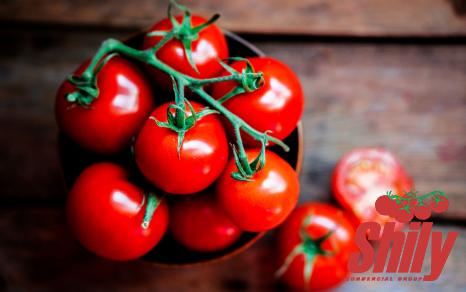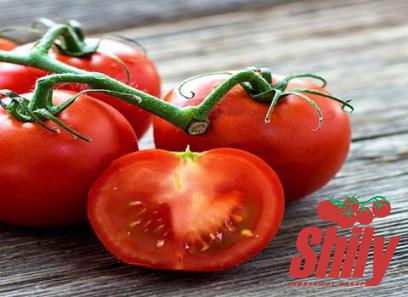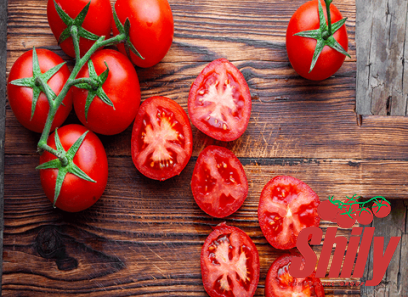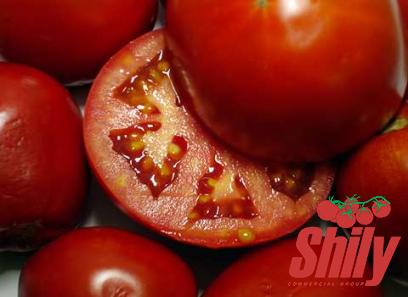Exploring the Benefits and Uses of Canned Tomatoes without Skin and Seeds
Introduction:
Canned tomatoes without skin and seeds have gained popularity as a convenient alternative to fresh tomatoes. This article aims to delve into the various aspects of using canned tomatoes, including their benefits, uses in culinary applications, and considerations when purchasing them. Explore the world of canned tomatoes without skin and seeds and discover the secrets to incorporating these versatile and time-saving ingredients into your cooking repertoire.
I. The Advantages of Canned Tomatoes without Skin and Seeds:
1. Convenience: Canned tomatoes without skin and seeds eliminate the laborious and time-consuming process of manually peeling and deseeding fresh tomatoes. This convenience factor makes them a popular choice for busy individuals or those seeking to simplify their cooking process.
2. Year-Round Availability: Unlike fresh tomatoes, which are typically seasonal, canned tomatoes are available year-round. This ensures that you can enjoy the flavor and benefits of tomatoes in any season.
3. Extended Shelf Life: Canned tomatoes have a longer shelf life compared to fresh tomatoes. This makes them a practical choice for situations where fresh produce may not be readily available or when preparing dishes in advance.
II. Culinary Uses and Applications:
1. Sauces and Stews: Canned tomatoes without skin and seeds are commonly used as a base for numerous sauces, stews, and soups. Their rich flavor and texture add depth to dishes such as pasta sauces, chili, and curries. The absence of skin and seeds provides a smoother consistency to the final product.
2. Salsa and Dips: Canned tomatoes can be easily transformed into delicious salsas and dips. By adding various complementary ingredients like onions, garlic, cilantro, and spices, you can create vibrant and flavorful salsa variations to accompany chips, tacos, or grilled meat.

3. Pizza and Pasta Toppings: The intense flavor of canned tomatoes without skin and seeds makes them an excellent choice for topping pizzas and pasta dishes. Their natural acidity accentuates the taste and harmonizes well with other ingredients like cheese, herbs, and vegetables.
4. Tomato Soups and Purees: The smooth texture and concentrated flavor of canned tomatoes make them the perfect base for tomato soups and purees. By blending them with herbs and seasonings, you can create comforting soups or use them as a healthy ingredient in vegetable purees.
5. Condiments and Marinades: Canned tomatoes can be processed into condiments such as ketchup, barbecue, or pasta sauces. Additionally, they can be used as a component in marinades, infusing meat or poultry with their tangy essence.
III. Tips for Choosing and Using Canned Tomatoes without Skin and Seeds:
1. Quality and Brand Selection: When purchasing canned tomatoes, opt for reputable brands known for their quality. Look for labels indicating no added preservatives or artificial ingredients for a healthier choice.
2. Consider Different Varieties: Canned tomatoes without skin and seeds are available in various forms, including diced, crushed, or whole. Choose the variety that suits your recipe requirements or personal preference.
3. Salt Content: Pay attention to the salt content in canned tomatoes, especially if you’re sensitive to sodium or following a low-salt diet. Some brands offer low-sodium options or allow you to adjust the seasoning yourself.
4. Storage and Shelf Life: Canned tomatoes have a longer shelf life but should still be stored in a cool, dark place away from direct sunlight. Once opened, transfer any remaining contents to an airtight container and refrigerate to maintain freshness.
5. Experiment and Customize: Don’t shy away from experimenting with canned tomatoes in your favorite recipes. Adjust the acidity, thickness, or flavor by combining different varieties or adding herbs and spices to make the dish truly your own.
Conclusion:
Canned tomatoes without skin and seeds offer a convenient and versatile ingredient for a wide range of culinary applications. With their numerous benefits, including year-round availability, extended shelf life, and the elimination of laborious prep work, these canned tomatoes have become a go-to choice for aspiring chefs and busy home cooks alike. Whether used in simmering sauces, zesty dips, hearty stews, or comforting soups, they provide a burst of tomato goodness that can elevate your dishes to new heights. By exploring the diverse uses and considering key factors when purchasing, you can make the most of canned tomatoes without skin and seeds while adding a touch of convenience to your culinary endeavors.I. The Growing Market for Canned Tomatoes without Skin and Seeds:

1. Market Overview: The global market for canned tomatoes is witnessing steady growth, with an increasing demand for convenience foods. The rise in busy lifestyles and growing awareness of the benefits of canned produce have contributed to the popularity of tomatoes without skin and seeds.
2. Health Conscious Consumers: Health-conscious consumers are looking for alternative ways to incorporate nutrient-rich ingredients like tomatoes into their meals. Canned tomatoes without skin and seeds offer a convenient solution as they are packed with vitamins, minerals, and antioxidants, making them a healthy addition to various dishes.
3. Rising Popularity of Mediterranean Cuisine: The popularity of Mediterranean cuisine, known for its abundant use of tomatoes, has also played a significant role in the increasing demand for canned tomatoes without skin and seeds. This has led to an expansion of the market as more people are seeking to recreate authentic Mediterranean flavors in their own kitchens.
II. Key Players in the Canned Tomatoes Market:
1. Major Brands: Several established brands dominate the canned tomatoes market, offering a variety of options for consumers. Examples include Hunt’s, Muir Glen, Cento, and San Marzano, known for their high-quality products.
2. Private Labels: In addition to major brands, private label products are gaining traction in the canned tomatoes market. Supermarkets and grocery chains are developing their own canned tomato lines to cater to consumers seeking affordable alternatives without compromising on quality.
III. Packaging and Labeling Considerations:
1. Packaging Choices: Canned tomatoes without skin and seeds are commonly available in metal cans lined with a protective coating to prevent the transfer of flavors or chemicals. BPA-free cans are also popular among health-conscious consumers.
2. Label Information: Manufacturers generally provide key information on the labels, including nutritional content, ingredients list, allergen information, and storage instructions. Look for labels that highlight the absence of preservatives or artificial additives for a healthier choice.
IV. Marketing and Promotion Strategies:
1. Recipe Inspiration: Brands can promote their canned tomatoes without skin and seeds by showcasing recipe ideas on their websites or social media platforms. This not only helps customers discover new ways to use the product but also builds brand loyalty.

2. Influencer Collaboration: Collaborating with food bloggers, chefs, or influencers who create content around cooking and recipe development can help promote the benefits and versatility of canned tomatoes. This can be done through sponsored content, recipe features, or product reviews.
3. In-Store Promotions: Brands can partner with retailers to offer in-store promotions such as discounts, bundle deals, or recipe demonstrations to attract consumers and encourage them to try their products.
V. The Impact of Sustainability and Environmental Factors:
1. Concerns Over Food Waste: Canned tomatoes without skin and seeds contribute to reducing food waste by offering a solution to excess or compromised fresh tomatoes. By utilizing imperfect produce or surplus crops, these canned products promote sustainability.
2. Packaging Innovations: Manufacturers are working to reduce the environmental impact of packaging by exploring more sustainable alternatives. This includes eco-friendly can lining materials, recyclable or biodegradable cans, and using minimal packaging.
3. Ethical Sourcing: Consumers are increasingly concerned about where their food comes from and the ethical practices employed. Brands that prioritize sustainable farming methods, fair trade policies, or support local farmers can attract environmentally conscious consumers.
VI. Emerging Trends and Innovations:
1. Organic and Artisanal Options: The demand for organic and artisanal food products has not skipped the canned tomatoes market. Consumers are seeking products that are free from pesticides and chemical residues, making organic and artisanal options more popular.
2. Flavor Varieties: Brands are incorporating various flavor combinations into canned tomatoes without skin and seeds, such as roasted garlic, basil, or fire-roasted options. These enhancements provide consumers with ready-made flavor profiles that can elevate their dishes.
3. Innovative Packaging Formats: Manufacturers are exploring new packaging formats, such as pouches or convenient single-serve portions, to cater to the needs of on-the-go consumers or those seeking portion control.
4. Online Retail: With the advent of e-commerce, more consumers are purchasing canned tomatoes without skin and seeds online. This trend allows for greater accessibility and convenience, as well as providing an avenue for niche brands to reach a wider audience.

Conclusion:
Canned tomatoes without skin and seeds have become a staple in many kitchens worldwide, offering chefs, home cooks, and busy individuals a convenient and versatile ingredient. The market for these canned tomatoes continues to grow, driven by the demand for year-round availability, extended shelf life, and the elimination of tedious preparation. As the popularity of Mediterranean cuisine rises and health-conscious consumers seek nutrient-rich options, the market for canned tomatoes thrives. With packaging innovations, sustainability efforts, and emerging trends, the canned tomatoes industry adapts to meet the needs and preferences of consumers. Whether through marketing strategies, collaborations with influencers, or investing in new product variations, the canned tomatoes market remains a dynamic and evolving sector in the food industry.









